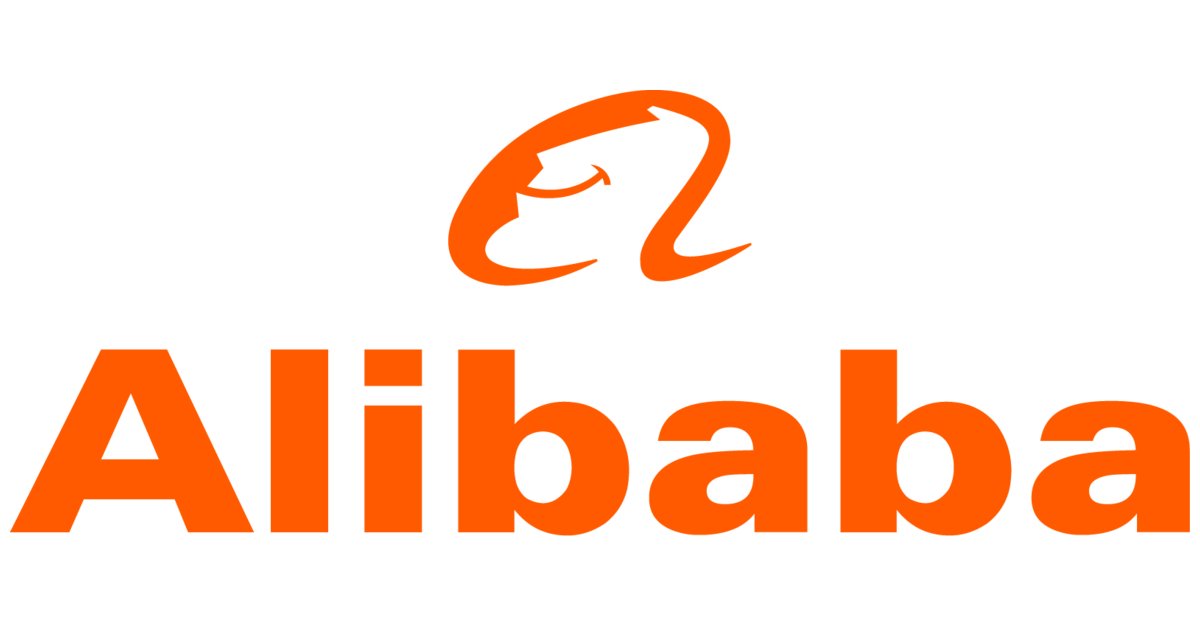Private Label Dropshipping: Creating a Unique Business Kingdom
In today’s competitive e-commerce field, Private Label Dropshipping model shines a unique light. As a promising business path, it provides a green road to success for individuals and small and medium-sized enterprises interested in starting their own business.

The core concept of Private Label Dropshipping is to enable companies to re-label existing products produced by third-party manufacturers and sell them to customers in a more attractive way. This model breaks away from the traditional dropshipping mentality and empowers companies to run their own brands.
Through Private Label Dropshipping, companies can not only rely on a unique brand image to stand out among their peers, but also greatly enhance the added value of their products with customised packaging design and marketing strategies. Compared with white label products, private label products can often be sold at a higher premium, thus creating more substantial profits for the enterprise.
What’s more, the Private Label Dropshipping model gives companies control over product quality, inventory and operations. This unprecedented autonomy not only helps to ensure a quality customer experience, but also injects a continuous momentum for business development.
In short, Private Label Dropshipping is a highly innovative and opportunistic business model. It has created a unique branding path for organisations and is driving a reshaping of the industry landscape. This guide will provide a comprehensive analysis of how to efficiently operate a private label dropshipping business, helping you realise your branding dreams and blossom in the business world.
Advantages of Private Label Dropshipping

Imagine you’re an up-and-coming fashion apparel brand determined to gain a foothold in this highly competitive industry. If you opt for a normal dispatch model, your products will be lumped together with those of countless other brands, making it difficult to attract customers’ attention.
However, if you choose the private label shipping model, everything is very different. You can personally design your own unique brand logo and packaging, injecting a unique personality into your products, and you don’t even need to find a designer to create a logo for you when you create your logo, you can just go through the third-party program canva and use the templates he provides for you to do it all the time. Your brand will be like a glittering jewel, shining in a sea of diamonds.
What’s more, with Private Label Shipping, you gain greater brand control and profit margins. By purchasing inventory directly from the manufacturer, you can negotiate better prices and keep more of the profits for yourself. At the same time, you can also flexibly adjust your product line and pricing based on market feedback to maintain a competitive edge. However, it is recommended that when creating your own private label, you prioritise confirming that your brand, including the logo, has been registered to avoid any unnecessary hassle, and at the same time, applying for legal protection, i.e., business registration, for your private label.
In addition, the scalability of the private label shipping model should not be underestimated. Imagine if your apparel brand is so popular that you want to expand into footwear and accessories. With this model, you can quickly expand your business and capture more market share by simply sourcing new products from your suppliers and re-labelling them under your own brand.
Best of all, you’ll be able to earn your customers’ loyalty to your brand through consistent brand marketing. They will become emotionally attached to your brand and will be more likely to come back for more.
Therefore, private label shipping is an attractive option for an emerging brand that wants to make a name for itself in the fashion world. It gives you brand autonomy, generates higher profits, and helps you quickly capture market share.
Disadvantage of Private Label Dropshipping

Although private label dropshipping has many advantages, it also has some potential challenges and disadvantages that companies need to pay attention to in advance.
One of the most significant disadvantages is the high initial cost. Compared with the ordinary white label dropshipping mode, enterprises need to invest more money upfront for the design and registration of trademarks, product packaging and labelling and other brand building work. This undoubtedly adds to the financial pressure of the initial stage of the business. And in recent years, although the rise of express delivery such as yunexpress, so that the postal time is gradually shortened, but, for the nature of one piece of hair itself, as well as the cost calculation related to the volume of orders from factories, many factories are not willing to pay attention to small orders.
Another challenge of concern is that private label dropshipping usually requires bulk purchase of products. In order to cover the costs of brand design and label production, companies often have to purchase large quantities of stock at one time to get better prices. This requires more start-up capital.
In addition, the product lifecycle under the private label dropshipping model also needs to be given high priority. As the enterprise binds the product with its own brand, once the product has a mediocre response or poor sales in the market, it will directly affect the brand image. Therefore, enterprises must always pay attention to product quality and market feedback, and adjust product strategies in a timely manner.
Finally, the investment in marketing and customer service should not be ignored. As private label products are often priced higher, companies need to do their best in marketing and customer service experience to establish a good brand image and convince customers that their products are value for money.
Although there are some potential risks and challenges associated with private label dropshipping, they can be overcome if companies are well prepared in advance and have a well thought out strategic plan. In the next section, we will discuss how to systematically operate this business model.
Dropshipping VS. Private Label Dropshipping

Comparing the two models of dropshipping and private label dropshipping, there are obvious differences and trade-offs between the two. In order to help companies better choose the right business model, we need to make a comprehensive comparison of the two.
The biggest advantage of the dropshipping mode is the low operating costs and the convenience of no inventory management (this is the biggest advantage of dropshipping, but now many e-commerce sellers are willing to choose to hoard a part of the inventory, in order to the smooth development of the business as well as to prevent problems with the product can be replenished in a timely manner). Instead of purchasing and storing inventory, the business simply arranges for the supplier to ship the goods directly to the customer upon receipt of the order. This model reduces the operating expenses of the enterprise and alleviates the pressure on capital.
However, the disadvantages of this model are also obvious. Because the enterprise is only an agent to sell products, product branding and packaging can not be personalised, it is difficult to achieve effective separation from other sellers, if you need to customise, then waiting for the business is a huge MOQ, as well as the high cost of customisation. This is in the homogeneity of the fierce market environment, easy for enterprises to fall into the plight of homogeneous competition.
On the other hand, the private label dropshipping model provides enterprises with greater autonomy and flexibility. Enterprises can attach their own brand logo and packaging design on the basis of ready-made products produced by suppliers to create a unique brand personality.
Under this model, companies have greater control over product quality, price, marketing strategy and other aspects. They can adjust their product lines and pricing according to market feedback to maintain a competitive edge. At the same time, by building a private label image, companies can expect to win higher customer loyalty.
However, private label dropshipping tends to have higher operating costs. Companies need to invest upfront in brand design and label production, and often need to purchase products in bulk to cover fixed costs. This requires more start-up capital, and many people who want to start their own business through e-commerce usually don’t have a lot of reserve capital, which becomes a paradox that can’t be crossed.
Overall, the two models have their own advantages and disadvantages, and enterprises need to weigh the choice according to their own financial strength, target market and long-term development strategy. For the capital is tight but eager to make profits as soon as possible for the entrepreneurs, the ordinary on behalf of the shipment may be more suitable; but if the enterprise has strong financial strength, and hope that the depth of cultivation of brand development, private label dropshipping mode will be a more sensible choice.
How to distribute private label products for small businesses
It’s not easy for a small business to make a lot of money from private label dropshipping. But if you find the right supplier, you’ll be on your way to success!
The first thing you need to do is find out what product line you want to work with. Different market segments have different suppliers, you have to lock the target market, so that you can find the right source of goods. For example, you want to do fashion clothing, then focus on finding clothing, shoes and bags related suppliers. If your dream is home products, that furniture, daily necessities and other suppliers is most suitable for you, but all of this is not to take for granted to operate these things, the specific choice of what product line, not by your own preferences, you must rely on the basis of numbers, such as through the Google trend to analyse the products you want to do the relevant trends, after their own analysis and argumentation, and then decide! What do you want to do.
Determine the focus of the market, you will have to do to find suppliers. Now there are a lot of large B2B site can be on it to find goods, such as Alibaba, AliExpress, Salehoo, etc., these sites have gathered a large number of high-quality suppliers, you’re on it to find the right medicine, China may be looking for the best supplier of the place, but also ask you to keep your eyes open, not all the products in China can be found in the best price, at the same time, these so-called At the same time, many of these so-called suppliers are traders who go to factories to take photos and record videos, and then make themselves look like factories through Alibaba, etc. In the end, you may not get the lowest price from the factory. You’d better order a few samples first, and check them personally. If the quality is really good, then you can continue to cooperate. Of course, the price, delivery time, after-sales service, these must also be in line with your needs, these in fact you can choose the supplier to operate together, because these are you choose the right supplier for your final standard.
Don’t forget to ask the supplier whether to support small quantities of custom and private custom needs Oh, after all, you do is private label business, personalised service is the king.
Most importantly, you must establish a long-term partnership with your supplier. If a supplier is reliable, try to co-operate with them for a long time. Long-term cooperation can not only ensure the stability of product quality, the future may also be able to get a variety of preferential benefits!
So, mate, choosing a good supplier is the first step to the success of private label dropshipping. Only with the right source of seamless co-operation, your small business can flourish, make a lot of money!
Best Private Label Dropshipping Supplier
This is a service provider that specialises in private label sourcing across multiple categories. It works with many well-known brands and is able to source directly from these brands to ensure authenticity and quality of products. Whether it’s a major international brand or a niche designer brand, ASG has it all. The products they offer, such as clothing, perfumes and cosmetics, are all of top quality and craftsmanship, making them ideal for businesses with a need for high-end goods.ASG’s mode of operation is different from that of traditional couriers in that businesses do not need to pay any upfront fees, and only need to pay for goods and shipping costs based on the order at the time of the actual sale, which greatly reduces the pressure on the cash flow of the business.

As the world’s largest B2B sourcing platform, Alibaba brings together countless suppliers and manufacturing plants from around the world. With a huge inventory of products, it can meet the purchasing needs of almost any type of product. No matter what kind of goods you need, you can find the corresponding sources and supply channels here. The biggest advantage of Alibaba is its low wholesale prices. Because suppliers and factories can directly connect on the platform, avoiding the intermediate links, it can get the most favourable purchasing costs for enterprises. This advantage makes Alibaba ideal for startups and micro-enterprises with limited budgets.

Also part of the Alibaba Group, AliExpress focuses on small-volume consumer goods sourcing, which fits the private label dropshipping model perfectly. Unlike its parent company Alibaba, which sources from factories, AliExpress offers a wide range of finished consumer goods at affordable prices, making it ideal for B2C retailers. The platform offers a variety of payment methods and supports small online payments, lowering the threshold for purchasing and attracting a large number of individuals and small and micro-enterprises.

Wiio is a supplier platform specialising in small business and private label dropshipping services. Its biggest selling point is that you don’t have to pay any high inventory management fees, which greatly reduces your operating costs. Wiio also has an efficient and effective logistics system that is excellent at shipping and transporting products, providing a seamless one-stop shop for businesses.

A private label provider specialising in high-end fashion products, Apliiq’s main products are custom-designed apparel products, including tops, dresses and coats, with a distinctive designer taste that reflects a strong fashion ethos. Pricing for Apliiq’s products is generally on the high side, but it matches its first-class quality and design capabilities. If you are targeting the mid-to-high-end consumer group in pursuit of fashion and quality, Apliiq is definitely a supplier option worth considering.

Printful is a private label provider of on-demand custom printed apparel and accessories. Its mode of operation is that companies only need to upload their own designs, and Printful can print them on specified garments, hats, bags and other accessories as needed. Printful has a wide range of products, including T-shirts, sweatshirts, caps, satchels and many other popular categories.

Dropified is a provider of automated private label shipping services for two major e-commerce platforms, AliExpress and eBay. Its biggest highlight is that the entire shipping process is completely automated, without manual operation, greatly improving the efficiency. Enterprises only need to complete the product selection and brand identity settings on the Dropified platform, the rest of the packaging, shipping, customer service and other aspects of the Dropified handled, saving time and effort. However, it should be noted that the use of Dropified requires a monthly subscription fee.

BigBuy is a one-stop B2B private label shipping service provider. Its service scope covers product procurement, brand packaging customisation, logistics, online marketing and other aspects of the whole process for enterprises to provide solutions. Whether it is an existing brand or a brand new attempt, BigBuy can meet the needs of different stages. With rich experience in the industry, BigBuy has provided services for many famous brands and is trustworthy.

BTS Wholesaler is a wholesale supplier of perfumes and cosmetics specialising in the EU. BTS Wholesaler is a wholesale supplier specialising in perfumes and cosmetics from the EU, sourcing directly from European brands, offering a wide range of products of guaranteed quality, BTS products are mainly for the European market, so if you are targeting European consumers, it’s definitely a good source to consider.

As a supplier of high-quality tea products, TeaSwan’s products are sourced globally and are of superior quality, much higher than ordinary commercial brands. TeaSwan also has a wide range of teas, with dozens of varieties of black, green, floral, and speciality teas to satisfy the needs of customers with different tastes. However, it should be noted that the pricing of TeaSwan’s products is generally higher, mainly for high-end consumers.

Dripshipper is a specialised supplier of premium coffee products. Their coffee beans are sourced from farms around the world to ensure freshness and quality, and they offer a wide range of flavours in the form of coffee beans, freshly ground coffee and ready-to-drink coffee. In addition to excellent sourcing, Dripshipper also provides companies with customised brand packaging, printing and labelling, and efficient logistics services to create an exclusive brand image and ensure fresh delivery. However, the monthly subscription fee puts a bit of pressure on small businesses with limited budgets, but for businesses with start-up capital and a community of coffee lovers, Dripshipper is a good choice.

FAQs
For any entrepreneur interested in pioneering the private label dropshipping business, doubts and questions about this model are perfectly normal. Here are some of the most frequently asked questions and answers that will hopefully clear up your doubts.
Q: Is private label dropshipping really profitable?
A: As you are able to work directly with manufacturers, you enjoy more favourable wholesale prices. Coupled with the elimination of the high cost of setting up your own warehouse, your ability to control the cost of your products is greatly enhanced. In addition, by creating a distinctive brand image, you can achieve higher market pricing for your products. More importantly, brand uniqueness attracts consumer loyalty and turns them into long-term customers. All things considered, this model undoubtedly holds tremendous profitability.
Q: How much start-up capital do I need for private label dropshipping?
A: Private Label Dropshipping does require more initial capital than the traditional dropshipping model. This is mainly because you need to invest in brand design, trademark registration, and product packaging and labelling at an early stage. Additionally, in order to purchase products in bulk at a lower price and offset these initial fixed costs, you usually need to make large-scale purchases. Therefore, if you have limited funds, traditional freight forwarding may be a more appropriate option. However, if you have sufficient start-up capital, Private Label Dropshipping can offer a business opportunity with more growth potential.
Q: How to find reliable private label dropshipping suppliers?
A: You can find many suppliers on well-known B2B platforms such as Alibaba, AliExpress, Salehoo and so on. On these platforms, you should not only check the quality of the products, but also consider factors such as price, delivery time and after-sales service. Meanwhile, you can also search through Google or look for suppliers who are more niche but have potential for growth on social media platforms such as Etsy, Instagram and Pinterest. However, no matter which supplier you choose, it is recommended that you buy samples and verify the quality of the product yourself before making a final decision.
All in all, as long as you are well-prepared and adopt the right strategy, private label dropshipping can surely bring considerable returns to your business. I’m sure this answer has given you a better understanding of this model. Let’s continue to discuss how to price your products.
How to price private label products wisely
In the realm of private label dropshipping, strategic pricing is the linchpin that ensures profitability – a delicate balance where pricing cannot be exorbitantly high, lest it erodes your competitive edge, nor can it be so low as to undermine your profit margins. Navigating this intricate pricing labyrinth demands a judicious evaluation of myriad factors, for only then can you unveil the quintessential path to optimal pricing.
Firstly, you must meticulously calculate the sales cost for each item, leaving no stone unturned. This encompasses the procurement costs from suppliers, the freight charges for shipping, customs duties (if applicable, acting as an invisible tariff), and the expenses incurred in packaging and labeling. Aggregate these cost components, and you have constructed the bedrock of your cost structure – a foundation upon which your subsequent pricing strategies shall be built.
Building upon this foundation, you must establish a target profit margin that aligns with your aspirations. Generally, a profit margin ranging from 15% to 45% is considered the golden mean – a reasonable balance between profitability and market competitiveness. While a higher margin promises amplified revenue streams, it may inadvertently dampen sales volumes, akin to a siren’s call luring customers away from your shores. Thus, you must carefully weigh this trade-off, calibrating your profit ambitions against your overarching business objectives with the precision of a seasoned navigator.
Next, cast your gaze upon the competitive landscape, scrutinizing the pricing strategies of your rivals with the keen eye of a hawk. Conduct a comprehensive market research to understand the pricing dynamics for similar products. While private label products often command a premium over generic, unbranded offerings, you cannot deviate too drastically from industry norms, lest you risk pricing yourself out of the market’s favor.
Conclusion
In this era of flourishing e-commerce, private label dropshipping emerges as a business model brimming with allure. Not only does it allow you to create a distinctive brand image, but it also paves the way for you to make huge profits flow into your coffers like a spring.
The paramount advantage lies in the unparalleled control you wield over the lifeblood of your brand. With the freedom to meticulously design logos, packaging, and marketing strategies, you can imbue your products with a distinctive personality that sets them apart from the sea of generic offerings. Your branded merchandise is like a masterpiece emblazoned with an artist’s signature. It will attract target customers with its unique charm, making them your loyal fans and willingly throwing themselves into your arms.
Yet, the allure of private label dropshipping extends far beyond mere aesthetics. By forging direct partnerships with suppliers, you gain access to preferential procurement prices that would otherwise remain elusive. Coupled with the absence of burdensome overheads associated with warehousing and production lines, your grasp over the cost dynamics tightens, unlocking a realm of heightened profit potential – a veritable treasure trove awaiting your deft navigation.
Moreover, private label dropshipping bestows upon you an unrivaled agility in navigating the ever-shifting tides of the market. With the ability to nimbly adjust your product lines, pricing strategies, and marketing tactics in response to market demands and growth objectives, you possess a formidable competitive edge. Simultaneously, cultivating a distinct brand identity fosters consumer loyalty, infusing your business with a wellspring of sustained momentum that propels it towards greater heights.
Unquestionably, this path is not without its challenges. It necessitates a substantial initial investment and an unwavering commitment to maintaining vigilance over product quality and market feedback. However, armed with sufficient financial fortitude and meticulous preparation, these obstacles can be surmounted with the same resoluteness as a mountaineer conquering treacherous peaks.
In the grand tapestry of entrepreneurship, private label dropshipping stands as a radiant pathway, beckoning you to chart your course and expand your empire’s dominion. While more arduous than the conventional dropshipping route, this journey promises to bestow upon you the coveted crown of brand sovereignty and the spoils of lucrative profits, propelling your enterprise towards an era of unparalleled prosperity.
Therefore, if you harbor the dreams of an entrepreneur and yearn to command the destiny of your brand, embrace private label dropshipping with unwavering resolve. Armed with a profound understanding of this paradigm and a well-crafted strategy, you shall unfurl your sails and navigate the turbulent seas of commerce, realizing your aspirations of soaring success.